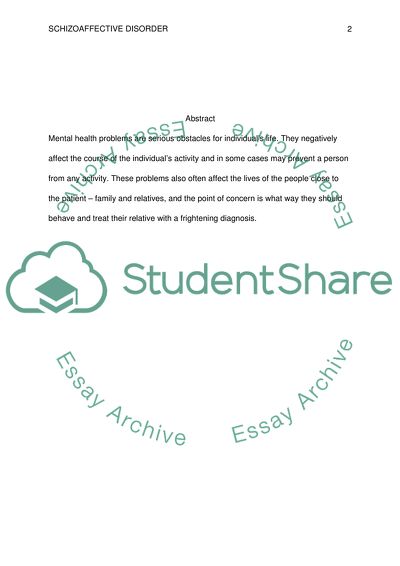Cite this document
(Schizoaffective Disorder: Personal Experience Essay Example | Topics and Well Written Essays - 1500 words, n.d.)
Schizoaffective Disorder: Personal Experience Essay Example | Topics and Well Written Essays - 1500 words. https://studentshare.org/psychology/1881615-schizoaffective-disorder
Schizoaffective Disorder: Personal Experience Essay Example | Topics and Well Written Essays - 1500 words. https://studentshare.org/psychology/1881615-schizoaffective-disorder
(Schizoaffective Disorder: Personal Experience Essay Example | Topics and Well Written Essays - 1500 Words)
Schizoaffective Disorder: Personal Experience Essay Example | Topics and Well Written Essays - 1500 Words. https://studentshare.org/psychology/1881615-schizoaffective-disorder.
Schizoaffective Disorder: Personal Experience Essay Example | Topics and Well Written Essays - 1500 Words. https://studentshare.org/psychology/1881615-schizoaffective-disorder.
“Schizoaffective Disorder: Personal Experience Essay Example | Topics and Well Written Essays - 1500 Words”. https://studentshare.org/psychology/1881615-schizoaffective-disorder.


